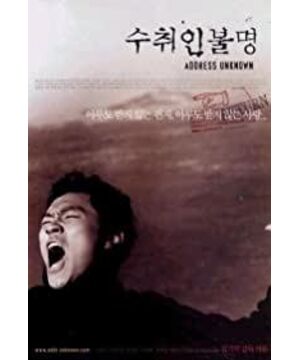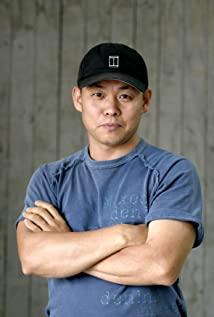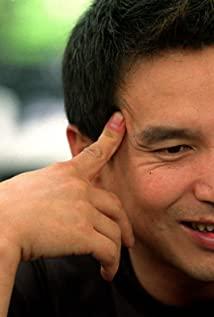Wang Heite's second lecture. Kim Ki-deok's addressee is unknown. Movie Significance 1. Opposition and protest against the US military presence (self-made pistols, doubts about the US military's defense of world peace, US military's self-abandonment) 2. Doubts about American culture (English, playboy, drugs, bars) 3. Worship Criticism of the United States (the rescue of South Korea by the United States is just the wishful thinking of some Koreans, South Korea has lost far more than what it has gained. The US military abandoned the car, the fate of Zhang Wu's family, the American ammunition hurt the eyes of the Koreans, and the Jihua arrow killed the American soldier , the police say you dare to shoot even American soldiers?) 4. Reflection on the Korean War (Ji Hua's father) (Enno's father, the North Korean soldier's corpse, the archer's mockery of Jihua's father) Sixth, wake up the Korean national consciousness (Enno was blinded by the ammunition abandoned by the United States - exchange the humiliation of the body (symbol of the nation's motherland) for the eyes - Defiance of the humiliating self-mutilating eye) Freudian theory of the unconscious. The so-called unconscious, on the one hand, contains all kinds of activities that are hidden and temporarily unknown to consciousness, and the rest are the same as conscious activities, and on the other hand, contains all kinds of repressed activities, if these activities become artistic activities, they will be lost. It must be in stark contrast to all the other activities in consciousness. That is to say, what we are deriving or trying to prove is not our secondary ritual, but a special mental activity that cannot be reached by consciousness, and we do not agree with people calling it subconscious or subconscious. The name is wrong and prone to misunderstanding. The psychological activities in the first stage are generally unconscious and belong to the Ucs system. If it fails to pass the censorship level during the inspection, it will be rejected and not allowed to enter the second stage. We say that it is "repressed". , or repressed into the unconscious, if he can pass the test, he will enter the second stage, and then belong to the second system, which is what we call the PCs system, but even if it belongs to this system, it does not mean that it is definitely affirmed He is conscious, in other words, he is not yet: "conscious", but has the possibility to become "conscious", and only under certain specific conditions can he become unimpeded and directly become conscious object. From the point of view of having the ability to become "conscious", we can also call this system "preconscious". If there is another kind of review or inspection, whose job is to specifically determine: whether the "preconsciousness" can become "consciousness", we can A clear distinction is made between s (preconscious) and cs. For now, it is important to remember that the PCs system also has the characteristics of the cs system, because at the transition point of the Ucs to the PCs (or cs), there are also censors exercising their powers. The core of the Ucs system is "instinctive presentation" whose purpose is "is a bet". In other words, the core of this system is "desire-impulse". Here, various instinctive impulses exist side by side, they are independent of each other, they do not contradict each other, and even when two desires (or contradictory) that seem to have different purposes are active at the same time, they will not destroy each other and contradict each other, Rather, they combine to form an intermediate or compromising purpose. We usually talk casually about "some unconscious instinctive impulse" or "some repressed instinctive impulse" and so on. These loose expressions are actually very harmful. When we refer to the instinctual impulse, the real equivalent of it and the term that can express it is "unconscious", and other terms will cause confusion. Most strikingly, the fact that one person's unconscious can influence another's unconscious without their conscious involvement (or indifference) really deserves serious study. We should try to find out whether, of all the factors that have contributed to the above results, the preconscious should be excluded, but this should be an indisputable fact as far as describing what is intended to be achieved. Freud theory. A third classic theory of child sexuality occurs in children who happen to see their parents having sex...all come to the same conclusion that it is an "abusive sex" (or Sexual intercourse is a sadistic act) because they have seen with their own eyes how the strong bully the weak with force... If the child finds the mother's bed stained with blood the next morning, his This concept becomes even more profound, because this just happens to be proof that there was another abuse and anti-abuse struggle between parents last night.… (Sigmund Freud pointed out that this is the sexual theory of "intercourse is sadism") Oedipus Complex Freud: Writer and Daydream Movie: DreamWorks Dog Eye's girlfriend is Zhang Wu's mother, and Zhang Before Wu was born, Zhang Wu chased and beat his mother, and followed his mother to climb a ladder and cut off his mother's tattoo. Freud's theory: the Oedipus complex. When a boy (from the age of two or three) enters the genital stage of libido development, gradually feels pleasure in his own genitals, and learns to obtain this pleasure at will by the stimulation of his hands, he becomes a mother to his mother. the lover who wishes to physically possess her mother in the way he infers from his observations and intuitions of sex, and tries to seduce him by exposing his proud male genitals to her she. In a word, his early awakened masculine instinct always wanted to replace his father in relation to his mother: because he sensed in him the power of the flesh, and discovered the power that his father possessed, his father before Has always been typical of being envied by him under any circumstances. By now, his father had become a rival who stood in his way and that he wanted to get rid of. If he is allowed to share the bed with his mother when his father is out, and is driven out of his mother's bed again when his father returns, then his satisfaction when his father is not in sight is the same as when his father returns When he appeared, his disappointment became a deeply felt experience. That's the theme of the "Oedipus mood," which Greek legend moved from a child's fantasy world into a fake reality. In the conditions of our civilization, this is forever doomed to a terrible end. Libido: Libido is sexual power. Proposed by the psychoanalyst master Freud, sex here does not refer to sex in the sense of reproduction, it is called: "libido", which refers to the pleasure of all bodily organs, including sexual inversions and children sex life. Freud believed that libido is an instinct, a force, and a driving force for the occurrence of human psychological phenomena. Freud started to use the term libido as early as 1894, the libido theorem states that a person's libido (sexual desire) is limited if he/she applies the libido to a person body, then the weight used on the other person will be reduced. Freud defined libido as the instinctual energy or drive contained within the so-called id, the main unconscious structure within the mind. He points out that these libidinal drives may contradict existing norms of civilized behavior, which manifest themselves as superego in the mental structure. In Jung's works, what is expressed refers to the individual's orientation towards his own development or personality. Free creativity in the process of transformation, or spiritual energy. Freud began to use the term libido as early as 1894 and first proposed it in 1905 in "Three Treatises on Sexuality" to refer to a latent energy associated with the sexual instinct. He contrasts sexual desire with the instinct for self-preservation, and uses the term libido to refer to sexual desire or sexual urge, and later expands to an instinctive desire for survival, seeking pleasure, and escaping pain, which is the opposite of the death instinct. Instinct motivational force. Freud regarded it as the source of power for all human psychological activities and behaviors, as well as sexual desire and sexual instinct. Sex life is not equal to reproduction, "libido" is the real driving force of sex life. "Libido" is a power, instinct, and sometimes sexual instinct. For example, a baby's sex life begins with pumping, and each subsequent stage has its own characteristics. Children's tendency to choose parents as objects is called "Oedipus complex" and "Electra", which is manifested in the attachment of boys to their mothers and girls to their fathers. By puberty, "libido" causes the child to escape from the parent and to seek out new sexual objects. According to Freud, the work of the treatment of psychosis consists in liberating the "libido" from its previous infatuation and focusing on the ego, thereby eliminating the bad symptoms. According to Freud, many individual instincts can be grouped under two main types of drives. One is the life instinct, often called Eros or sex; the other is the death instinct, sometimes called the destructive or aggressive instinct. Instinct originates from Idi, but is controlled by the ego. Each instinct has its own form of psychic energy. Freud used the term libido to denote the force that makes the living or sexual instinct work, but he never found a similar word to denote the psychic energy of the death instinct. Second, Jung also used the concept of libido. Jung (1875-1961) was a famous Swiss psychologist and the founder of analytical psychology. His main works include: "Transformation and Symbolism of Libido", "Psychology of the Subconscious", "Psychological Types", "Contributions of Analytical Psychology", "Modern Man in Search of the Soul", "Archetypes of the Collective Subconscious Mind", etc. The libido that Jung spoke of is a universal life force, manifested in growth and reproduction, as well as in other activities, and needs to find a way out in all the activities of the body. It can be said that his libido includes two categories: sexual and nutritional. Differences of Views Freud defined libido as the instinctual energy or drive contained in the so-called id, the main unconscious structure within the mind. He points out that these libidinal drives may contradict existing norms of civilized behavior, which are expressed in the mental structure Superego now. The need for conformity and control of libido leads to anxiety and disorder in the individual, which in turn prompts the individual to use self-defense mechanisms to release these unsatisfied, mostly unconscious, psychic energies in other forms. Overuse of this mechanism can lead to neurosis. The main purpose of psychoanalysis is to direct the id drives into consciousness, allowing them to be directly gratified in order to reduce the patient's dependence on self-defense mechanisms. According to the Swiss psychiatrist Jung, libido is equated with psychic energy. Duality (opposition) creates psychic energy (libido) and expresses itself only through symbols, he states: "Libido expresses itself in the course of life and is subjectively recognized as struggle and Desire." In a narrow sense, libido also refers to an individual's urge to engage in sexual activity. In this sense, the opposite of libido is the death instinct.
View more about Suchwiin bulmyeong reviews









